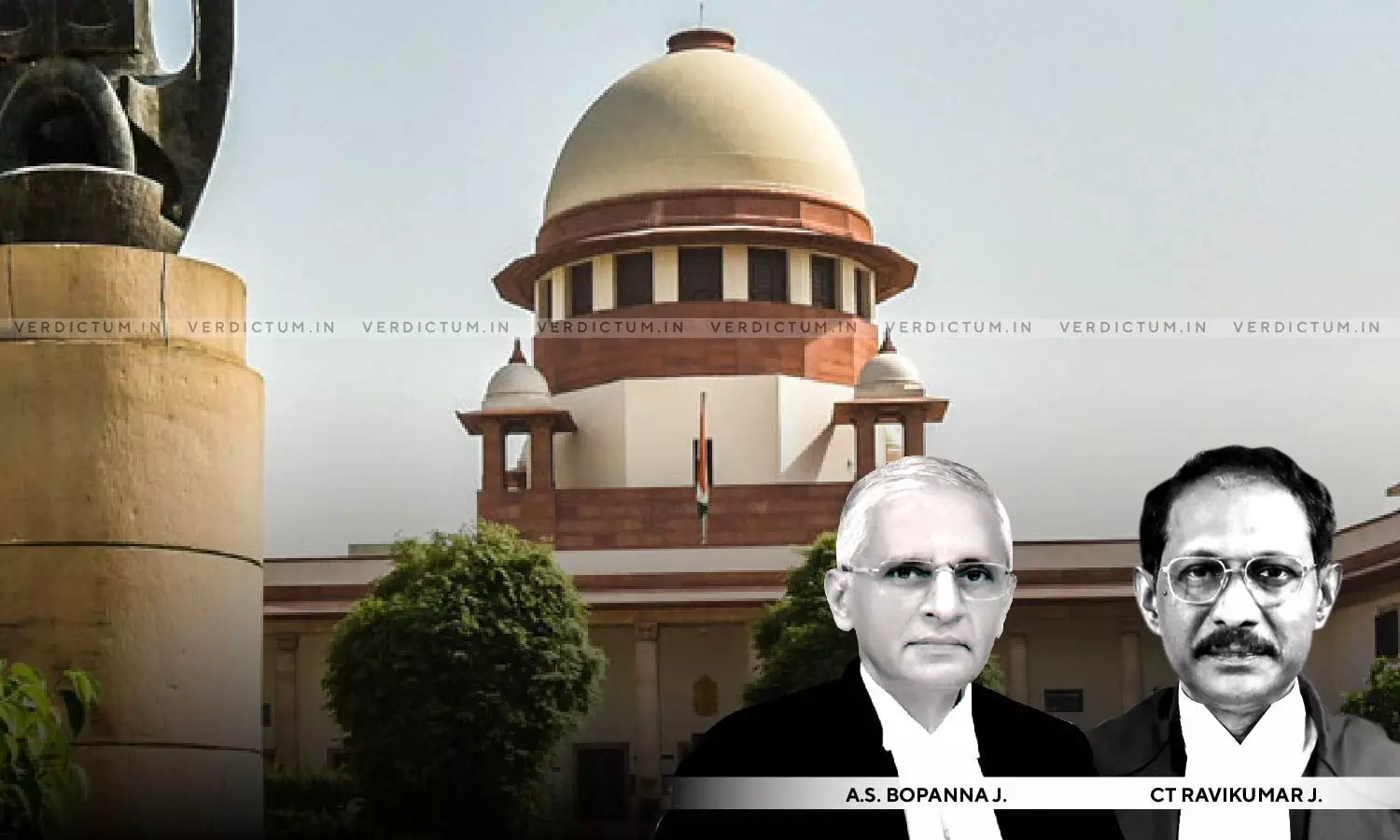
NCDRC Has Limited Revisional Power; Cannot Interfere With SCDRC Order If There Is No Material Irregularity Or Illegality: SC
 |
|The Supreme Court has emphasized that, invoking its revisional power under Section 21 (b) of the Consumer Protection Act, the NCDRC cannot interfere with a SCDRC order, if there is no material irregularity or illegality.
In that context, the Bench of Justice AS Bopanna and Justice CT Ravikumar observed that, "there was absolutely no reason or justification for NCDRC to upturn the concurrent orders and to order for the dismissal of the complaint and at the same time issuing a direction only to grant Rs.1 lakh as ex gratia merely because such an offer was made by the respondent-insurer in the memorandum of the revision petition. There cannot be any doubt with respect to the position that in the absence of anything suggesting that the State Commission had acted in the exercise of its jurisdiction illegally or with materially irregularity, interference with an order of the State Commission confirming the order of the District Forum, in exercise of the limited revisional power under Section 21 (b) of the Act, by NCDRC, is without rhyme or reason and cannot be sustained."
The appellants, who were originally respondents before the National Consumer Disputes Redressal Commission (NCDRC), appealed a decision made by the Punjab and Haryana High Court. The NCDRC had allowed a revision petition filed by the Life Insurance Corporation of India (respondent) and overturned previous decisions in favour of the appellants, ultimately dismissing their complaint and compensation claim.
The case revolved around the death of Shri Narender Kumar Kantilal Modi, who submitted a life insurance policy proposal shortly before his accidental death in 1996. Despite the deceased's premium payment and the issuance of a policy, the respondent did not provide benefits to the appellants, prompting legal action. The District Forum ruled in favor of the appellants, but the respondent appealed to the State Commission and then the NCDRC, arguing that no concluded contract existed due to the deceased's death before policy communication.
The NCDRC, citing precedent, concluded that receipt of the premium and policy preparation did not constitute acceptance of the proposal, thereby rejecting the appellants' claim.
The key issue at hand was whether the NCDRC acted appropriately in overturning previous decisions and dismissing the complaint. Despite dismissing the complaint, the NCDRC ordered the respondent to pay the appellant Rs. 1 lakh as ex-gratia. This raised questions about the validity of issuing such an order after dismissing the complaint.
Referring to the jurisdiction of the NCDRC as provided under Section 21, the Court observed that, "such an offer was made by the Respondent much earlier even before the matter reached the District Forum, but the appellant had denied to accept such an offer. The specific direction, in such circumstances issued in exercise of the revisional power dissuade us to accept the impugned order as one dismissing the complaint in toto and in the aforesaid circumstances, the impugned order virtually partakes the character of an order modifying the order of the District Forum which was confirmed by the State Commission."
The Court also emphasised that the avowed objects and reasons of the Life Insurance Corporation Act, 1956 would reveal that the main object and reason is to ensure absolute security to the policy-holder in the matter of his life insurance protection.
In light of the same, the appeal was allowed, and the impugned order was set aside.
Cause Title: Mrs. Bhumikaben N. Modi & Ors. vs Life Insurance Corporation of India
Click here to read/download the Judgment